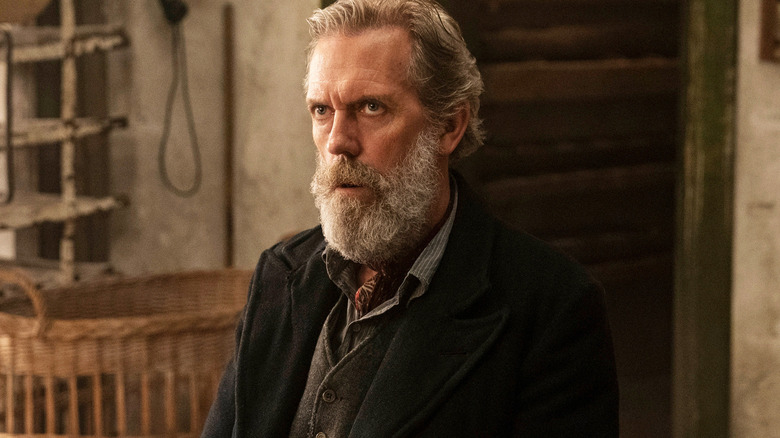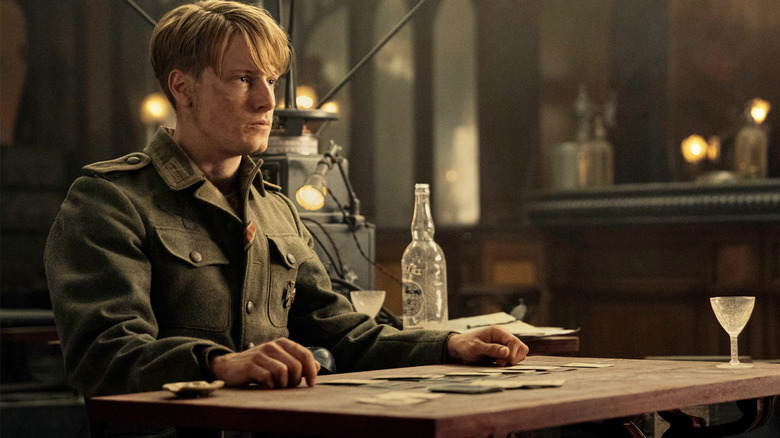All The Light We Cannot See: The Character Controversy That Offended Some Readers
Netflix premiered a four-episode miniseries adaptation of Anthony Doerr's World War II novel "All the Light We Cannot See" on November 2. That the streaming service chose this book for a filmed adaptation is entirely unsurprising given the accolades it received, including a Pulitzer Prize and a spot on the National Book Awards' list of finalists in 2014. Reviews of the novel aren't all positive, however, with one criticism in particular surfacing in more than one assessment.
For example, author Dominic Green spent at least half of his review for The New Republic discussing the nature of normalization before applying this analysis to "All the Light We Cannot See." The novel, he argued, groups its Nazi characters with its Allies, foregrounding their shared humanity rather than sufficiently highlighting the inherent cruelty and violence of Nazism. "When World War II is reduced to a conflict between technological determinism and innocent children, the difference between aggressors and defenders is erased," he wrote.
This same critique surfaced in The New York Times as well. "The fact is, 'All the Light We Cannot See' falls shortest when it tries to deal with Nazism," reads a contemporaneous review of the novel.
Even a largely positive review for The Guardian called out this same quality. "There is a worrying even-handedness in Doerr's treatment of the Germans and the French," wrote author Justin Cartwright, echoing an altogether common sentiment among the book's harsher critics.
This same issue pervades Netflix's All the Light We Cannot See miniseries
While the "All the Light We Cannot See" novel earned plenty of accolades indicative of its overall success, critics were largely unkind to Netflix's TV series adaptation. For instance, in a review of "All the Light We Cannot See" for Looper, Audrey Fox argued that the miniseries outright fails to do its source material justice. Given such widespread condemnation, its numerous negative reviews tend to highlight a range of problems. Nevertheless, the characterization issue from the book ultimately seems to have made its way into its filmed adaptation too.
In a review for Time, for example, author Judy Berman singled out the depiction of Nazis as a standout issue with its screenplay. "[Steven] Knight's script is particularly flimsy, shallowly skimming each character's surface and failing to meaningfully address the big moral questions that come with depicting a Nazi combatant as a good person," she wrote.
Similarly, in a review for The Hollywood Reporter, Daniel Fienberg described its approach to Nazism as cartoonishly straightforward. "Helping to make clear that [protagonist] Werner is a Good Nazi — most of the deaths he's responsible for are offscreen and thoroughly sanitized — our attractive protagonists are being menaced by The Worst Nazi," he opined.
Even though Netflix significantly changed the ending of "All the Light We Cannot See," readers who took issue with how the novel handles its Nazi characters can expect to encounter this very same thing in the miniseries.

